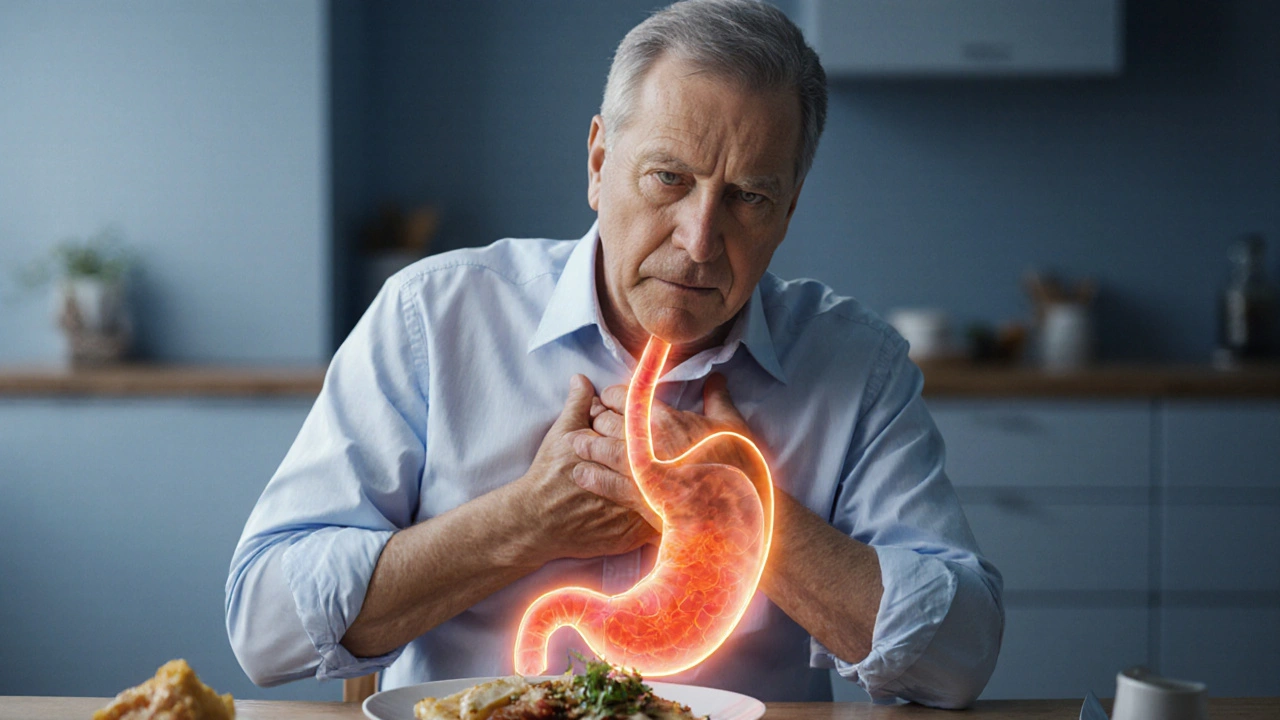GERD Chest Pain: Understanding, Managing, and Finding Relief
When dealing with GERD chest pain, a burning discomfort behind the breastbone caused by gastro‑esophageal reflux disease. Also known as reflux‑related chest pain, it often mimics heart problems and can be confusing. This type of pain isn’t just an occasional flare‑up; it’s a signal that stomach acid is repeatedly spilling into the esophagus, irritating the lining and sparking that classic “heart‑burn” feeling.
At its core, acid reflux, the backward flow of stomach acid into the esophagus is the engine behind GERD chest pain. When the lower esophageal sphincter weakens, acid slides up and triggers the burning sensation. GERD chest pain therefore encompasses heartburn, sour taste, and sometimes a choking feeling. Understanding this connection helps you separate reflux‑related discomfort from cardiac issues, which demand a different emergency response.
Key Factors and Treatment Options
Managing the pain usually requires a three‑pronged approach: medication, lifestyle tweaks, and monitoring. Proton pump inhibitors, drugs that block stomach acid production like omeprazole or pantoprazole directly reduce the acid that fuels the burn. They’re often the first line of defense and can provide quick relief, but long‑term use should be discussed with a doctor.
Beyond pills, lifestyle triggers, daily habits that increase reflux risk such as large meals, late‑night eating, and smoking play a huge role. Simple changes—eating smaller portions, avoiding spicy or fatty foods, staying upright after meals, and losing excess weight—can cut the frequency of episodes dramatically. Think of these adjustments as turning down the dial on the acid pump rather than just putting a band‑aid on the symptom.
Diagnostic clarity also matters. Because GERD chest pain can mimic heart attacks, a medical evaluation often includes an ECG or stress test to rule out cardiac causes. Once heart disease is excluded, a trial of acid‑suppressing therapy often confirms the diagnosis: relief within a couple of weeks points to reflux as the culprit.
When standard treatments fall short, doctors may explore advanced options. Endoscopic procedures strengthen the lower esophageal sphincter, while newer medications target specific receptors that control acid secretion. These approaches are typically reserved for severe cases that don’t respond to traditional PPIs or lifestyle changes.
It’s also worth noting that stress and sleep quality can intensify reflux. Poor sleep positions—like lying flat—allow acid to travel more easily toward the throat. Elevating the head of the bed or using a wedge pillow can keep stomach contents where they belong while you rest.
Below you’ll discover a curated set of articles that dive deeper into each of these areas—medication comparisons, home‑remedy tips, and practical lifestyle strategies—so you can build a complete toolbox for tackling GERD chest pain head‑on.

GERD Chest Pain vs Heart Attack: Key Signs You Shouldn't Ignore
Learn how to tell if chest pain is caused by GERD or a heart problem, recognize warning signs, and get practical tips for diagnosis and relief.
October 2 2025